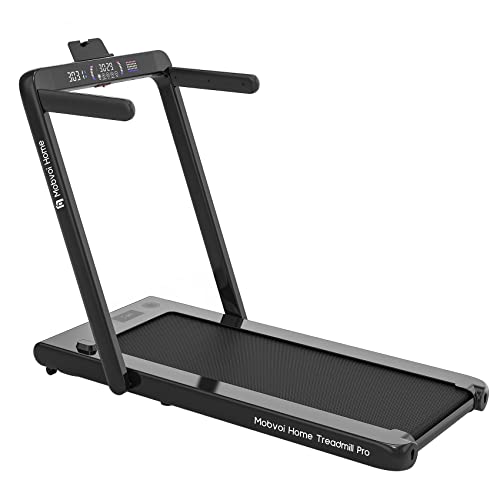treadmill-electric4693
treadmill-electric4693
Gym Treadmill Tips From The Top In The Industry
Treadmills: A Comprehensive Guide to Understanding Their Functionality, Benefits, and Appropriate Selection
Intro
Treadmills have actually ended up being a staple in modern-day fitness routines, both in homes and gyms worldwide. They use a convenient and efficient way to keep cardiovascular health, boost endurance, and help in weight management. This article checks out the various types of treadmills, their advantages, functions to think about when acquiring, and some FAQs to guide users in making notified choices.
Types of Treadmills
When it comes to selecting a treadmill, it is important to understand the various types readily available in the market. Here are the primary classifications:
1. Manual Treadmills
- Mechanism: These treadmills have an easy style and rely on the user’s efforts to move the belt.
- Pros: More cost effective, quieter operation, no electrical energy required.
- Cons: Limited features, may not offer the same range of workout intensity.
2. Motorized Treadmills
- Mechanism: Powered by a motor that drives the belt, permitting users to walk or perform at a set pace.
- Pros: Greater range of speeds and slopes, geared up with various features such as heart rate displays and workout programs.
- Cons: More expensive and may require more upkeep.
3. Folding Treadmills
- System: Designed for those with restricted space, these treadmills can be folded for easy storage.
- Pros: Space-saving, frequently motorized, flexible functions.
- Cons: May be less resilient than non-folding designs.
4. Commercial Treadmills
- Mechanism: High-quality machines developed for usage in gyms and physical fitness centers.
- Pros: Built to endure heavy usage, advanced functions, typically include warranties.
- Cons: Pricey and not ideal for home usage due to size.
5. Curved Treadmills
- Mechanism: A distinct style that enables users to propel the belt using their own energy.
- Pros: Offers a more natural running experience, promotes better running kind.
- Cons: More pricey and can be noisier.
| Treadmill Type | Pros | Cons |
|---|---|---|
| Handbook | Inexpensive, no electrical power required | Restricted features |
| Motorized | Range of speeds, advanced features | Maintenance needed |
| Folding | Space-saving, frequently motorized | May do not have resilience |
| Industrial | Developed to last, professional-grade features | Expensive |
| Curved | Natural running experience, promotes good type | Greater cost |
Advantages of Using Treadmills
Treadmills provide various advantages that can contribute to one’s general health and wellness objectives. Some of these benefits consist of:
- Convenient Workouts: Treadmills enable users to exercise inside no matter weather.
- Cardiovascular Health: Regular usage can enhance heart health by increasing endurance and promoting healthy blood circulation.
- Weight Management: Effective for burning calories, which assists in weight-loss and management.
- Adjustable Workouts: Users can manage speed, incline, and period to develop personalized workout experiences.
- Security: Treadmills provide a predictable surface, reducing the risk of falls compared to outdoor running.
- Multifunctional: Many treadmills come with features like heart rate monitors, workout programs, and even home entertainment systems.
Choosing the Right Treadmill
When picking a Treadmill Best, prospective purchasers ought to think about numerous key aspects:
Features to Consider:
- Motor Power: Typically measured in horse power (HP), a motor strength of at least 2.5 HP is recommended for severe runners.
- Belt Size: A longer and larger belt accommodates various stride lengths, offering comfort throughout exercises.
- Slope Settings: Adjustable slope features simulate outside hill running and can increase exercise intensity.
- Weight Capacity: Ensure the treadmill can support the user’s weight for security and durability.
- Console Features: Look for user-friendly dashboards, workout programs, and Bluetooth compatibility for streaming music or other functions.
Spending plan Considerations
- Under ₤ 500: Entry-level manual treadmills appropriate for casual walkers.
- ₤ 500 – ₤ 1,500: Mid-range motorized treadmills that use more functions and much better toughness.
- ₤ 1,500 – ₤ 3,000: High-end models with advanced technology, larger motors, and longer service warranties.
- Over ₤ 3,000: Commercial-grade treadmills perfect for frequent use in gyms or training facilities.
Frequently Asked Questions (FAQs)
1. How frequently should I use a treadmill?
It is recommended to use a treadmill a minimum of three to 5 times a week, incorporating various intensity levels for best outcomes.
2. Can I slim down by utilizing a treadmill?
Yes, constant use of a treadmill can add to weight reduction, specifically when combined with a well balanced diet and strength training.
3. What is the very best speed to walk on a treadmill for newbies?
A speed of 3 to 4 miles per hour is an appropriate variety for newbies. It’s vital to start slow and slowly increase rate as comfort and stamina improve.
4. Do I require to utilize a treadmill if I already run outdoors?
Utilizing a treadmill can supply additional advantages, such as regulated environments and differed exercises (slope, periods) that are not always possible outdoors.

5. How do I maintain my treadmill?
Regular upkeep consists of lubricating the belt, cleaning the deck and console, and examining the motor for ideal performance.
Treadmills are important tools for those seeking to boost their fitness levels in a regulated and convenient way. With numerous types readily available, understanding their functions and benefits is crucial for making an informed purchase. By considering individual exercise needs, area accessibility, and spending plan constraints, individuals can find the most appropriate treadmill that fits their lifestyle. Incorporating treadmill workouts into a well balanced fitness regimen can result in improved health results and an enjoyable workout experience.


